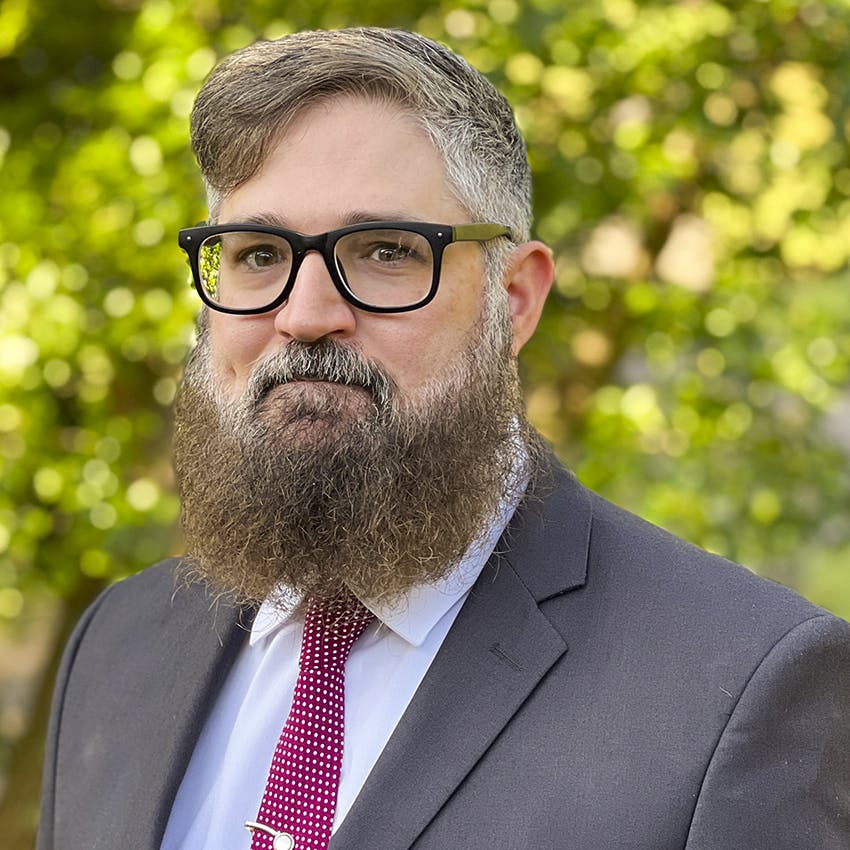ODNI-UVA Partnership Develops Future Intelligence Workforce
The National Security Data and Policy Institute aims to bridge skills gaps and develop the intelligence community’s next-gen workforce.

The Office of the Director of National Intelligence (ODNI) and the University of Virginia (UVA) partnered to establish the National Security Data and Policy Institute (NSDPI), which aims to leverage academic expertise to address the country’s most pressing national security issues. Director of National Intelligence Avril Haines said that the institute will accelerate the United States’ emerging tech advantage at a ribbon cutting in November in Charlottesville.
“As our primary competitors and adversaries continue to make massive investments in technology and people, this institute will help inform how we prepare the [Intelligence Community] workforce to develop the most productive human-machine partnerships,” said Haines on Nov. 22.
The partnership reflects a growing emphasis across the Intelligence Community (IC) on the critical role advanced data analysis and artificial intelligence play in national security. IC Chief Data Officer Lori Wade told GovCIO Media & Research in October that the workforce is a critical component of modernization for the IC.
“We’re all competing for the skilled workforce across the private sector, across the DOD, with the IC and across the globe,” said Wade. “We need to start investing and we need to think of new and different ways in which we can bring them into the workforce,” said Wade.
According to UVA, Wade and her team will work closely with Philip Potter, a professor of politics and public policy and the founding director of the Batten School of Leadership and Public Policy’s National Security Policy Center, who will lead the new institute.
Deputy Director of National Intelligence for Policy and Capabilities Charles Luftig told GovCIO Media & Research in an interview that IC officials are examining the workforce needs and challenges with NSDPI officials.
“We have procedures in place where the IC, CDO and the chief data officer office, will help collect requirements questions from around the intelligence community,” Luftig said. “Then, we’ll work in concert with the Institute in order to figure out the prioritization of those in order to make sure that we don’t sort of oversaturate immediately.”
Academic institutions like UVA give the IC an advantage in creating a better and more well-rounded workforce for the intelligence world, officials said.
“We have been so impressed to learn about UVA’s Launchpad and your efforts to widen the aperture beyond STEM to train more liberal arts majors to be tech-savvy critical thinkers,” Haines said at the ribbon-cutting. “The nation truly needs more of those programs to address our human talent shortage in AI and technology broadly.”
The institute will conduct new data research, develop policy strategy and advance next generation technologies in national security. Luftig said combining the data and policy side is critical to modernizing the intelligence workforce and outpacing emerging threats.
“Policy folks are very good at creating policy. The data folks are very good at focusing on data,” said Luftig. “We need to be able to rapidly find and infuse data and examine it through a more interdisciplinary lens than we ever have before.”
“This center will bring together real expertise in a bunch of different areas that the university has at its disposal and combine that with the IC to really advance national security,” Luftig added.
The institute, Haines said, reinforces the IC’s commitment to harnessing cutting-edge data analysis techniques to decipher and counter evolving threats and to create systems that help human analysts better understand the threat landscape.
“The nation truly needs more of those programs to address our human talent shortage in AI and technology broadly,” said Haines. “It’s imperative that we work across all sectors to inspire and equip the next generation to rise to these challenges.”
The partnership is a new frontier in the IC’s workforce mission, Luftig said. The IC Data Strategy, released last year, calls for more non-traditional partnerships and the NSDPI, he said, can be game-changing.
“This is an example, perhaps a leading example, of non-traditional partnerships. Not state-to-state, but really government to outside of government,” said Luftig. “I think this is going to be transformative.”
This is a carousel with manually rotating slides. Use Next and Previous buttons to navigate or jump to a slide with the slide dots
-

War Department Advances Zero Trust to Meet 2027 Deadline
Officials detailed efforts to strengthen zero trust, improve cyber resiliency and accelerate secure innovation ahead of the fiscal 2027 federal deadline.
2m read -

New DOL Framework Prepares Workers for Human-AI Collaboration
DOL's AI Literacy Framework encourages organizations to tailor AI skills training, emphasizing human-centered approaches.
3m read -

Trump Touts AI Energy Pledge, Drug Pricing Site in State of the Union
President Donald Trump addressed AI data center power consumption, promoted TrumpRx and spotlighted a national student AI initiative during his State of the Union address.
3m read -

Navy Pushes AI from Experiments to Everyday Warfighting Functions
The Navy’s hybrid fleet hinges on a common naval lexicon and trustworthy AI woven into every intelligence function.
6m watch







